September 26, 2017
“Food from here”: Local food production and social protection networks in Cuba
Marianela González / WFP, Santiago de Cuba (Cuba). - Cuba’s Family Care Systems are spaces where elders with low incomes, different abilities or who lack family support, have access to a diversified, healthy and safe diet, thanks to government subsidies. Albio (81) and Elisa (73), living in Santiago de Cuba, an Eastern province of the country, are two of the hundreds of elders that benefit from this social protection network located throughout the island.
As partner of the SDG Fund's Joint Programme in Cuba, the World Food Programme (WFP) provides rice and beans to fulfill the dietary requirements designed and monitored by nutritionists. WFP’s support also includes management to constantly strive towards improving the supply system. A number of questions arise: how can these programmes be more sustainable and efficient? In which ways, can the quality of the diet be improved with safe foods? And, facilitated by WFP’s international vision: Which good practices have been implemented in other countries?
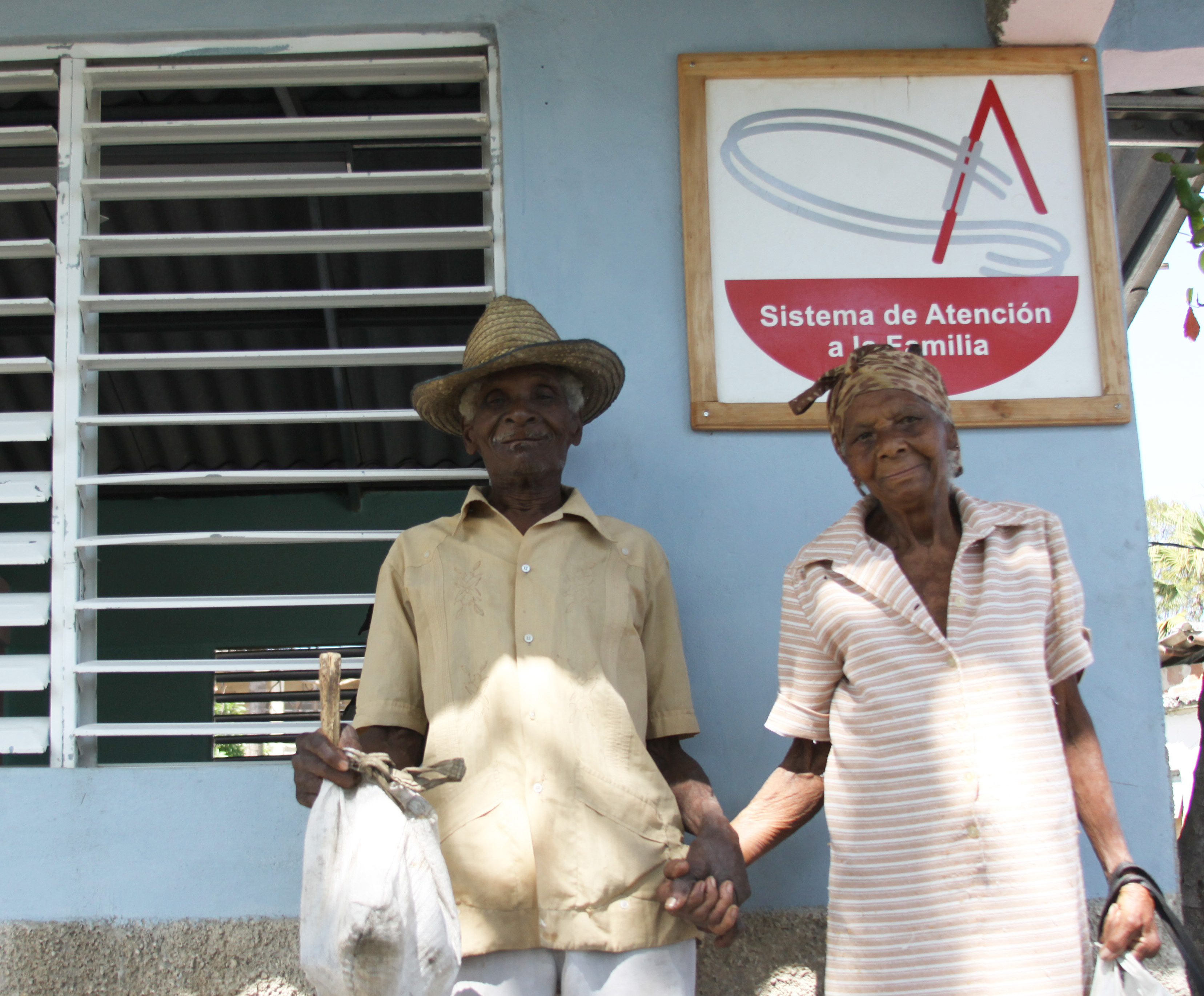
Albio (81) and Elisa (73) are two of the hundreds of beneficiaries from this social protection network in Santiago de Cuba. / Mariana González (WFP)
Drought and Local Food Production
There are many other social programmes, besides the Family Care Systems, that provide meals, including Child Daycares, Grandparent Care Centers, Maternal and Senior Care Homes. These are places where children, elders and people with different abilities have access to a reliable and safe diet, regardless of their economic standing.
Nonetheless, these programmes are faced with the same challenge: they have no control over where the food comes from or how it reaches the table. Providing everyone with the food that they need can be a challenge for these programmes, particularly fresh foods. Fruits and vegetables, for example, often travel for a whole week before arriving at these centers.
Working with Cuban government institutions, WFP is attempting to build shorter and more stable paths between food producers and beneficiaries of the social protection networks. In the context of one of one of the most intense droughts recorded in Cuban history, Santiago de Cuba, one of the most severely affected provinces, is launching a trial experience to explore methods to foster connections between producers and consumers.
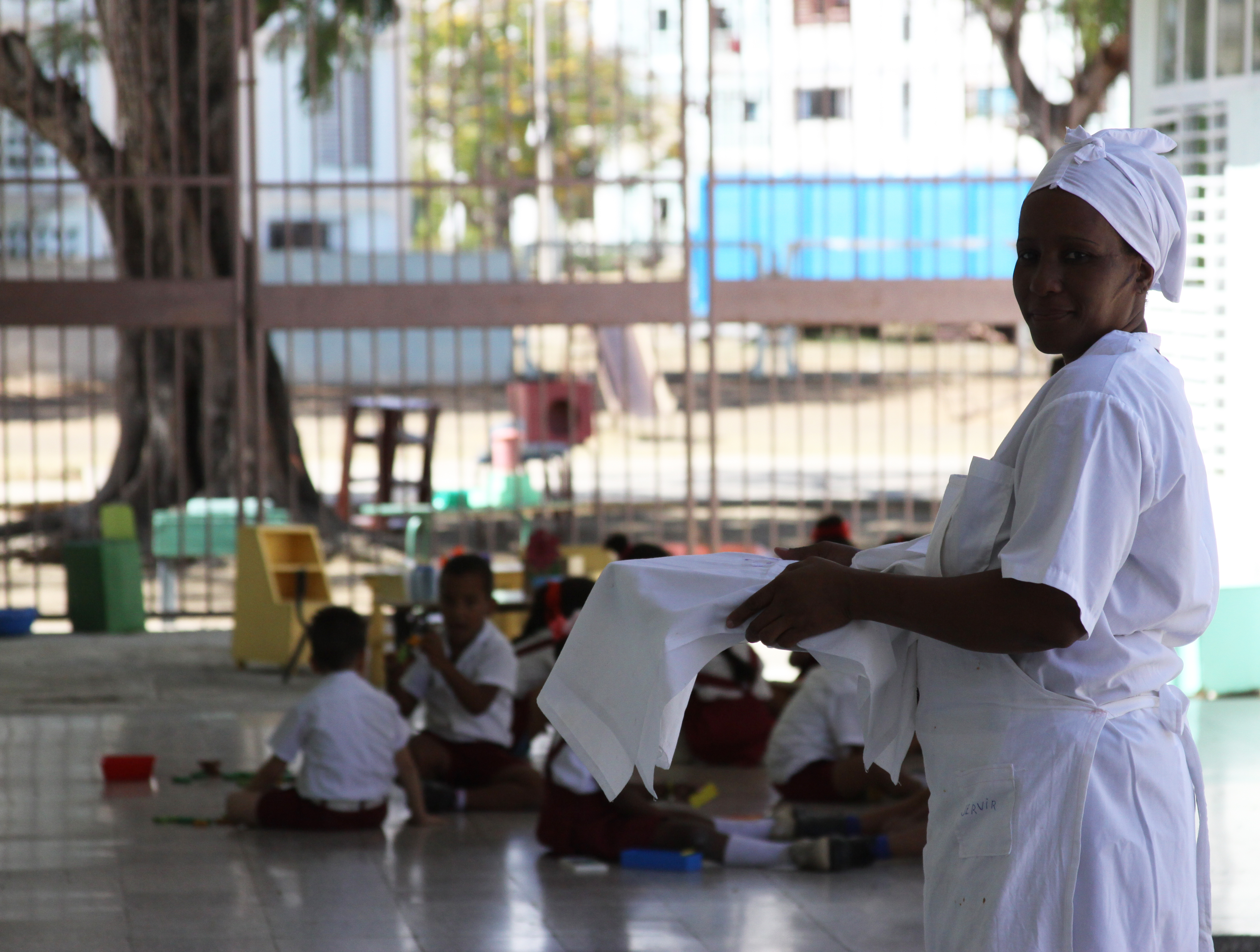
Child Daycares, Grandparent Care Centers, Maternal and Senior Care Homes also provide a reliable and safe diet to people. / Marianela González (WFP)
Local food
Niurka Delisle administers one of the Family Care Systems in the Abel Santamaria commune of Santiago de Cuba. Like the 33 elders who live there (who use the service), she receives lunch and dinner, and feels the impact that the current drought has had on the availability, diversity and quality of the food served. “So far, the solution to increasing dietary diversity has been to enhance provincial planning and distribution, however, there may be another way: the elders could receive local food”, Niurka explains.
Niurka is one of dozens who participates in the WFP organized workshops, supported by the Sustainable Development Goals Fund (SDG), and in partnership with the United Nations Development Programme (UNDP) and UNICEF.
Together with other sectors from the social protection networks in the community, she has helped identify vulnerabilities in the system and has met with producers to understand how crops can be more resilient to drought, more sustainable and adapted to the dietary needs of elders, girls and boys of the community. “Drought is hitting us hard, but I think there are alternative harvesting techniques that could mitigate the losses, or crop varieties that use less water. If we adapt to the situation, we can have good results.”
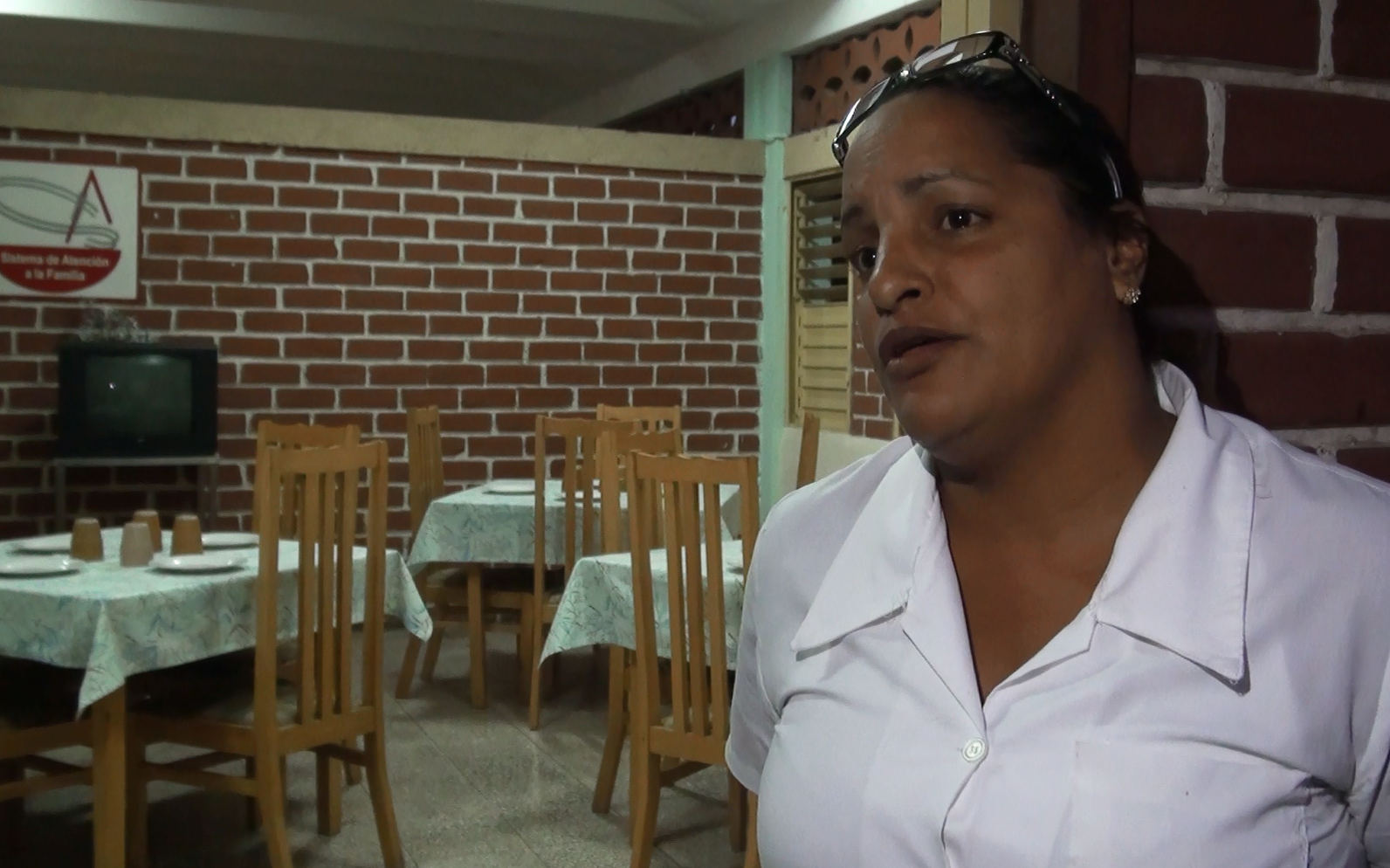
Niurka is one of dozens who participates in the WFP organized workshops, supported by the SDG Fund. / Marianela González (WFP)
“Sometimes schools and daycares have to close for lunch because there is no water to prepare the meals”, Inalvys Bueno, a local producer shares. She has been working in the school gardens for years, and has seen the impact of the drought on her crops and subsistence firsthand.
She is optimistic about finding a solution, but believes it must be a joint solution involving all the actors. Her 1.59 ha of land are already being used to bring women producers together to search for ways to deal with the lack of water.
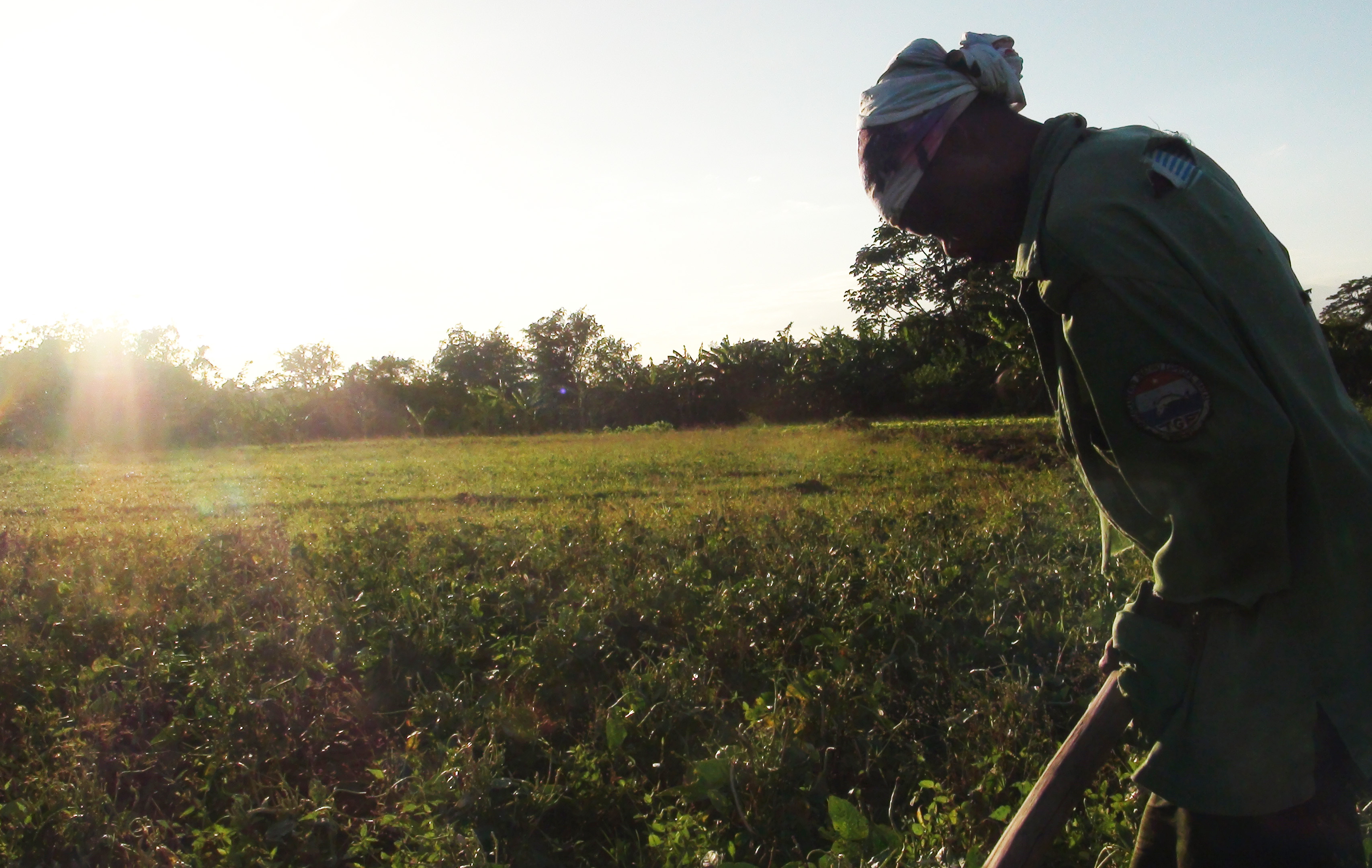
Inalvys Bueno, local producer and one of the beneficiaries of the SDG Fund's joint programme in Cuba. / Fidel A. Rodríguez (WFP)
The cooperative brings together girls and boys, administrators and others from the area, to reflect on their capacity to respond to the demands of the social protection networks. For Inalvys, it is not only about increasing the production potential of the land, but about effective communication and conciliation mechanisms between drought surveillance and the decision-making process.
“Add your drop” is a slogan used by community leaders, managers of the social protection networks and producers of the Abel Santamaria community. The message aims to draw attention to the role that each actor plays and the importance of each person in the context of a drought. The project strengthens the ability of communities and producers to respond to droughts and reduce their negative impact on food security and nutrition by deconstructing the agricultural value chain and bringing producers and consumers closer together.
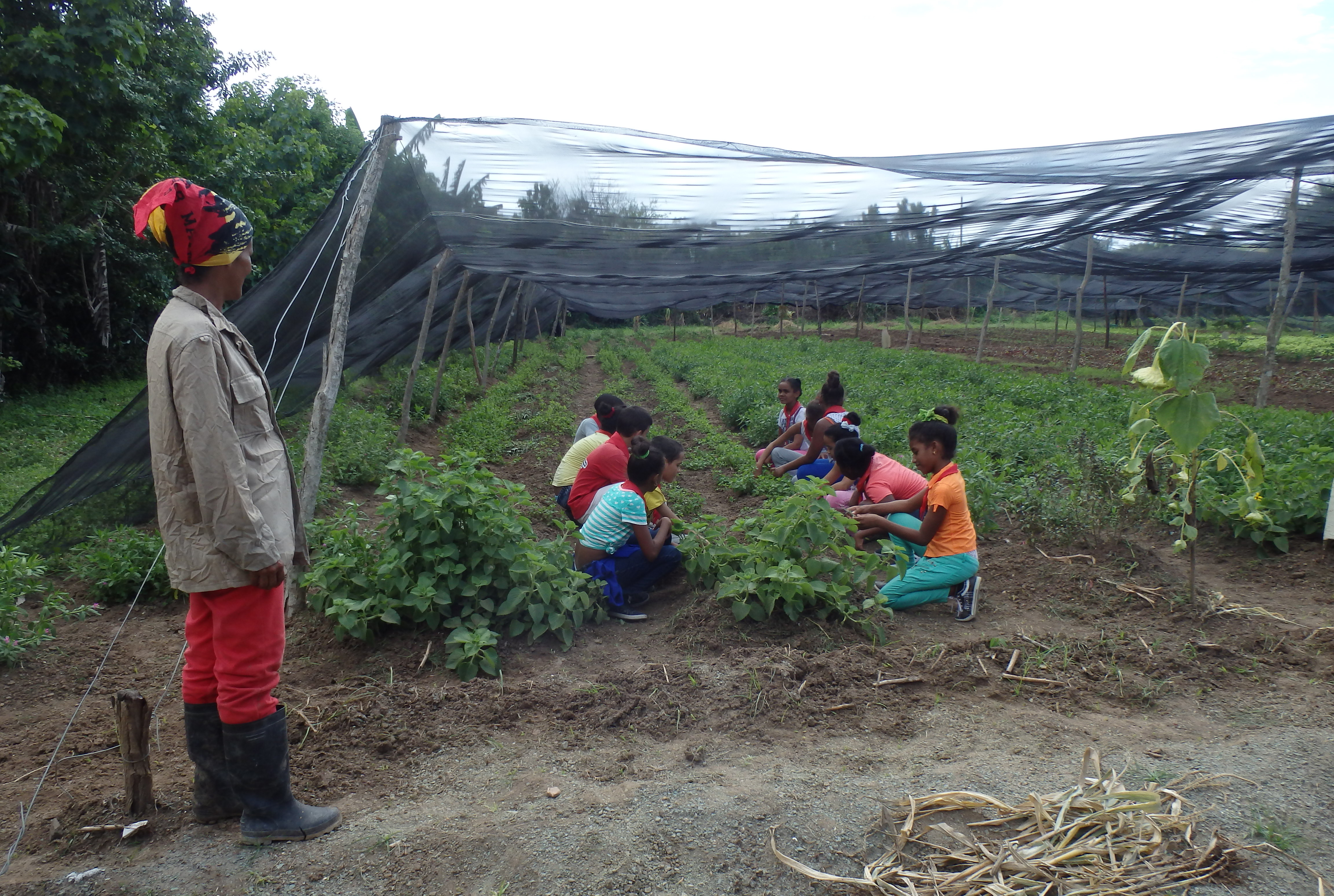
The project strengthens the ability of communities and producers to respond to droughts. / Inés Medina (WFP)
Over the next months, 100 producers are expected to receive technology and training to strengthen their capacities and the decision-making process, and enhance the sustainable and efficient use of water with timely information about the state of the drought that can be used to plan and respond to the event and avoid unnecessary losses. This is an important step towards maintaining social protection networks, and supporting the 1000 people who benefit from the stable provision of food, which responds to their preferences, and enhances their food and nutritional security during droughts.
The project “Add your drop” strengthens drought response capacities, improving their impact on food and nutritional security and the public provision of safe water in the municipality of Santiago de Cuba. It promotes the articulation between the hidrometeorological early warning system and the control, distribution and provision of water in times of scarcity, through capacity building and the efficient use of water to ensure the continuity of food production in drought conditions.
Around 15.000 people will directly benefit from this project. 95% of the inhabitants of Santiago de Cuba: 437 816 people will benefit from the monitoring and rational management of water sources, distribution and water quality. The MINCEX, the Provincial Government of Santiago de Cuba, the Provincial Delegations on Water Resources, Agriculture, Public Health Care, along with the United Nations (WFP, UNICEF and UNDP), participate in this programme with the Sustainable Development Goals Fund.
The cooperation, headed by UNDP, is financed by SDG Fund, an innovative approach that contributes to achieving the2030 Agendafor Sustainable Development, by combining the efforts of UN Agencies, governments and the public and private sector.






